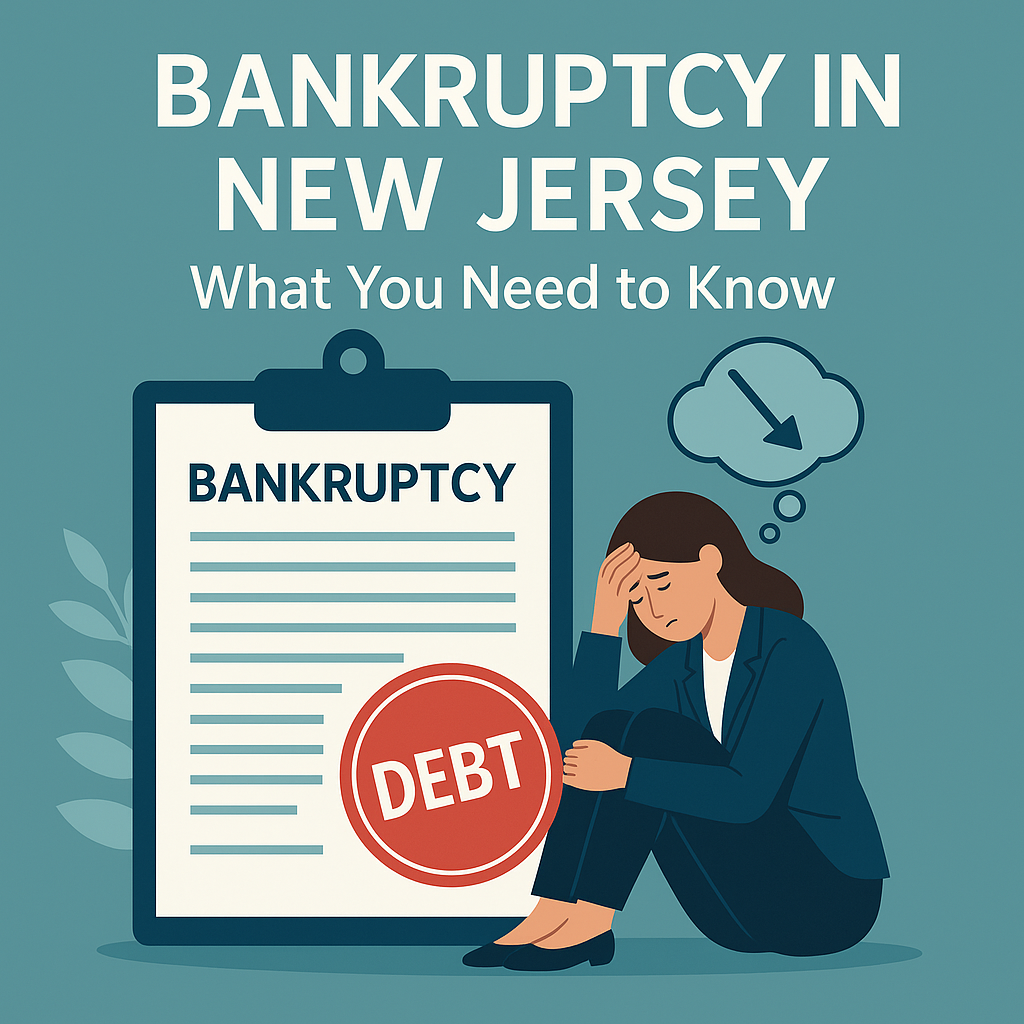If you're facing overwhelming debt and considering a financial fresh start, filing bankruptcy in New Jersey may be the right path forward. Understanding the process, your options, and your rights under New Jersey bankruptcy laws is the first step toward reclaiming financial stability.
What Is Bankruptcy in NJ?
Bankruptcy in NJ is a legal process designed to help individuals and businesses eliminate or restructure debt under the protection of the federal court system. While bankruptcy is governed by federal law, some aspects—like exemptions and procedures—are state-specific.
Common Types of Bankruptcy in New Jersey
There are two main types of consumer bankruptcy available in New Jersey:
- Chapter 7 Bankruptcy in NJ
This option allows for the elimination of most unsecured debts, such as credit cards and medical bills. To qualify, you must pass a means test based on your income and family size.
- Chapter 13 Bankruptcy
If you have a steady income and want to keep assets like your home or car, Chapter 13 allows you to repay a portion of your debt over 3–5 years.
Many people start by searching how to file for bankruptcy Chapter 7 in NJ to explore whether they qualify for total debt discharge.
How to File Bankruptcy in New Jersey
Filing bankruptcy in NJ involves several key steps:
- Credit Counseling: You must complete a credit counseling session from an approved provider within 180 days before filing.
- File a Petition: The bankruptcy process begins when you submit a petition to the U.S. Bankruptcy Court for the District of New Jersey.
- Automatic Stay: Once you file, creditors must stop collection efforts, lawsuits, wage garnishments, and phone calls.
- Trustee Review: A court-appointed trustee will review your case, conduct a hearing, and recommend a resolution.
- Discharge or Repayment Plan: Depending on your filing type, debts may be discharged (Chapter 7) or repaid through a court-approved plan (Chapter 13).
Wondering how to file for bankruptcy in NJ without a lawyer? While technically possible, navigating the system without legal guidance can be risky. Even a small mistake in paperwork or missed deadline can lead to case dismissal.
Why You Need a Bankruptcy Attorney in New Jersey
Hiring an experienced bankruptcy attorney in New Jersey ensures that your rights are protected and the process runs smoothly. A qualified lawyer can:
- Determine which type of bankruptcy is best for your situation
- Help you maximize state and federal exemptions
- Ensure all forms are properly completed and submitted
- Represent you in court and negotiate with creditors
If you're searching for bankruptcy attorneys in New Jersey, look for someone with local court experience and a track record of client success.
Frequently Asked Questions
Is filing bankruptcy in New Jersey public?
Yes, but it’s unlikely to be publicized unless you're a public figure. Records are accessible through the court system.
Can I keep my home if I file for bankruptcy in NJ?
Yes, depending on your equity and the type of bankruptcy. New Jersey’s exemption laws help protect your primary residence in many cases.
How long does a bankruptcy stay on my credit report?
Chapter 7 stays for 10 years, while Chapter 13 remains for 7. However, many people see credit improvement within 1–2 years.
Take the First Step Toward a Fresh Start
At Simon Law Group, LLC, our skilled bankruptcy attorneys in New Jersey have helped countless clients get back on their feet. Whether you're ready to file for bankruptcy in NJ or just exploring your options, we’re here to guide you every step of the way.
📞 Call (800) 709-1131 for a confidential consultation, or visit www.simonattorneys.com to learn more.



